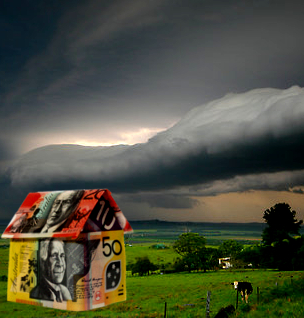Credit squeeze forecast
 Experts at investment bank UBS say an expected tightening of lending standards will cut credit availability.
Experts at investment bank UBS say an expected tightening of lending standards will cut credit availability.
UBS economist George Tharenou says the ongoing finance sector royal commission has already showed that misconduct is more severe than many observers anticipated, and irresponsible lending is rampant.
“In particular, APRA raised an alarm regarding the over reliance on the HEM [Home Expenditure Measure] benchmark,” Mr Tharenou said.
“This benchmark assumes only a very modest or frugal level of household expenditure — it assumes that a family of four in Sydney has living expense slightly less than the income provided to a retired couple on the old age pension.”
The bank says tighter lending rules will signal the end of the banks’ lending “super cycle”.
“The banks may be required to undertake due diligence on customers' financial situation to comply with the 'reasonable inquiries' within the Responsible Lending Laws,” recent UBS research said.
Reduced borrowing capacity and credit could harm the broader economy.
“Further, the household wealth effect could reverse and many potential investment property buyers could avoid the market,” UBS said.
A credit crunch in which new funding falls by 25 per cent in 2019 and a further 10 per cent in 2020, “is not inconsistent with experience seen overseas during the GFC”, the report found.
“Further, consumption and GDP would be likely to slow sharply and the RBA may consider cutting rates.”
“There is a strong correlation between home-lending volumes and house prices,” Mr Tharenou pointed out.
“If this correlation holds and housing finance falls as seen in our scenario analysis, this could lead to a substantial reduction in Australian house prices.”







 Print
Print